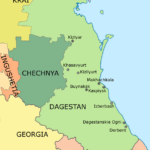Words Start With Eu
1. Eucalyptus
2. Eurasia
3. Europe
4. Euphoria
5. Euthanasia
6. Eugenics
7. Euphemism
8. Euphony
9. Eureka
10. Euro
11. Eulogy
12. Euthyroidism
13. Eulipotyphla
14. Eurythmics
15. Euphorbia
16. Euthenics
17. Eustress
18. Eustachian
19. Eupnea
20. Eurocentric
21. Eutectic
22. Euploid
23. Eulogize
24. Eudaemonic
25. Eumetazoa
26. Euglena
27. Eutrophication
28. Eupatrid
29. Eutaxy
30. Euskara (Basque language)
More About Words Start With Eu
Welcome to the fascinating world of words starting with “eu”! This unique letter combination holds a treasure trove of vocabulary that is both intriguing and diverse. In this introductory piece, we will embark on a linguistic journey and explore the many words beginning with “eu” that enrich our language.
The “eu” prefix originates from the Greek language, where it signifies “good” or “well.” This linguistic heritage gives these words an air of positivity and excellence. As we delve into this collection of terms, you will discover how each word brings something special to the table, whether it pertains to various fields of study, everyday life, or high-level concepts.
One of the first words that may come to mind when thinking about “eu” is “euphoria.” This term embodies an overwhelming feeling of happiness or excitement, creating a sense of euphoric bliss. It is an emotion that captures the essence of joy, encapsulating the elation we experience during life’s most delightful moments. Whether it be achieving a long-awaited goal or relishing in the simple pleasures of life, euphoria is a concept that resonates with everyone.
Moving away from the realm of emotions, let’s explore the scientific domain. Have you ever wondered about the natural wonders of our planet? If so, you may be interested in learning about “euphotic.” This term relates to the upper layer of the ocean where sunlight can penetrate, supporting abundant life through photosynthesis. The euphotic zone is crucial for sustaining marine ecosystems, serving as a beacon of life in the vast depths of the sea.
For the linguists and word enthusiasts among us, “euphemism” is an intriguing word to delve into. Derived from the Greek root “euph mon,” meaning “to speak well,” a euphemism is a mild or indirect expression used to replace a harsh or offensive term. Euphemisms are often employed in sensitive or taboo topics to soften the impact of certain words while maintaining clarity of communication. The art of using euphemisms is a delicate balance between diplomacy and social decorum.
In the realm of biology, the word “eukaryote” holds significant importance. A eukaryote is an organism whose cells contain a distinct nucleus enclosed within a membrane, separating the genetic material from the rest of the cell. This complex cellular structure is present in plants, animals, fungi, and protists, distinguishing them from prokaryotes such as bacteria. Understanding the nature of eukaryotes has been instrumental in unraveling the mysteries of life and the evolutionary processes that shape our world.
The world of arts and literature is not exempt from the influence of “eu” words. Consider “euphony,” a term often associated with lyrical beauty in language and music. Euphony refers to a harmonious combination of sounds that is pleasing to the ear and evokes a sense of aesthetic pleasure. It is the art of creating a melodious quality in both written and spoken forms, capturing the hearts and minds of audiences.
These examples merely scratch the surface of the vast array of words beginning with “eu.” Each term carries its own unique beauty, significance, and purpose, contributing to the richness and depth of the English language. Exploring this distinctive collection of words not only expands our vocabulary but also deepens our understanding of various subjects, cultures, and perspectives.
As we continue our linguistic journey, we will venture into the realm of “eu” words with curiosity and openness. From everyday life to the depths of scientific exploration, these words offer a glimpse into the marvels of our world, inviting us to appreciate the power and versatility of language. So, join me in this exploration of “eu” words, where we will discover the breadth and depth of human expression and knowledge.
Words Start With Eu FAQs:
1. Q: What is the European Union?
A: The European Union (EU) is a political and economic union comprised of 27 European countries.
2. Q: What are the primary goals of the EU?
A: The primary goals of the EU include promoting peace, ensuring economic and social progress, and fostering European integration.
3. Q: How does the EU ensure the free movement of goods and services?
A: Through the establishment of a single market, the EU enables the free movement of goods, services, capital, and people within its member states.
4. Q: Can individuals from non-EU countries work in EU member states?
A: Yes, individuals from non-EU countries can work in EU member states if they meet specific requirements and obtain the necessary work permits or visas.
5. Q: What benefits do EU citizens enjoy?
A: EU citizens benefit from rights such as the freedom to live, work, study, and travel within the EU, as well as access to healthcare and social benefits.
6. Q: How does the EU impact environmental policies?
A: The EU promotes sustainable development through implementing policies that address climate change, protect natural resources, and prioritize renewable energy sources.
7. Q: What is the relationship between the EU and its member states’ currencies?
A: The majority of EU member states use the euro (¬) as their common currency, while a few maintain their national currencies.
8. Q: How is the EU governed?
A: The EU has various institutions, including the European Commission, European Parliament, Council of the EU, and European Court of Justice, which collectively govern its affairs.
9. Q: How do countries become members of the EU?
A: Countries must meet specific criteria, including economic stability, respect for democratic values, and compatibility with EU laws, before being considered for EU membership.
10. Q: Can EU member states trade with non-EU countries?
A: EU member states can trade with non-EU countries, but trade policies and regulations are often coordinated and negotiated collectively by the EU to ensure a unified approach.













